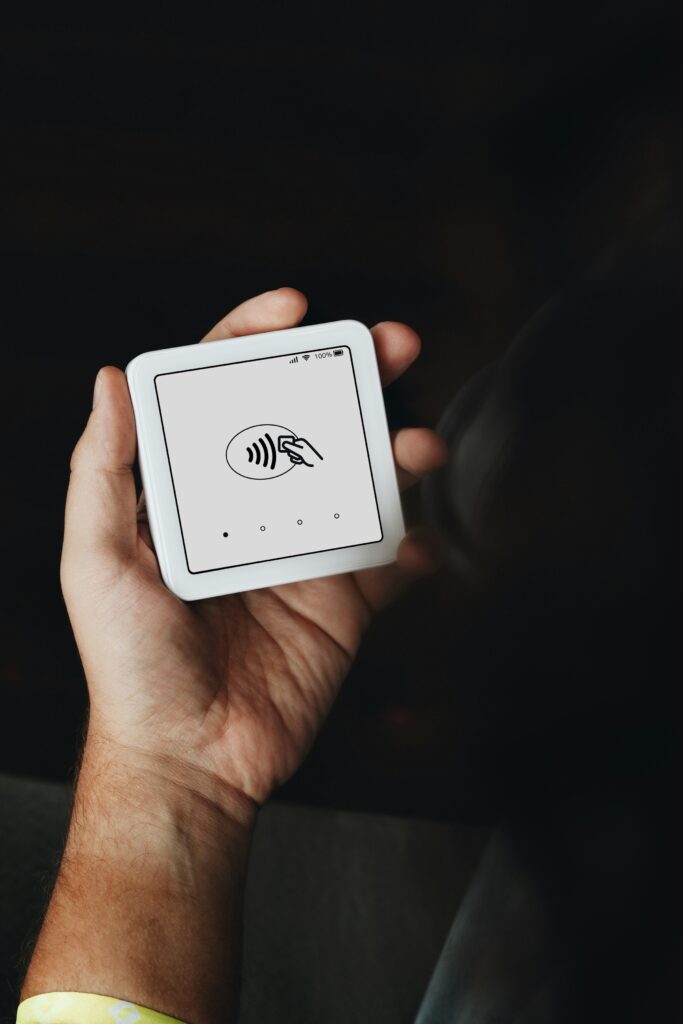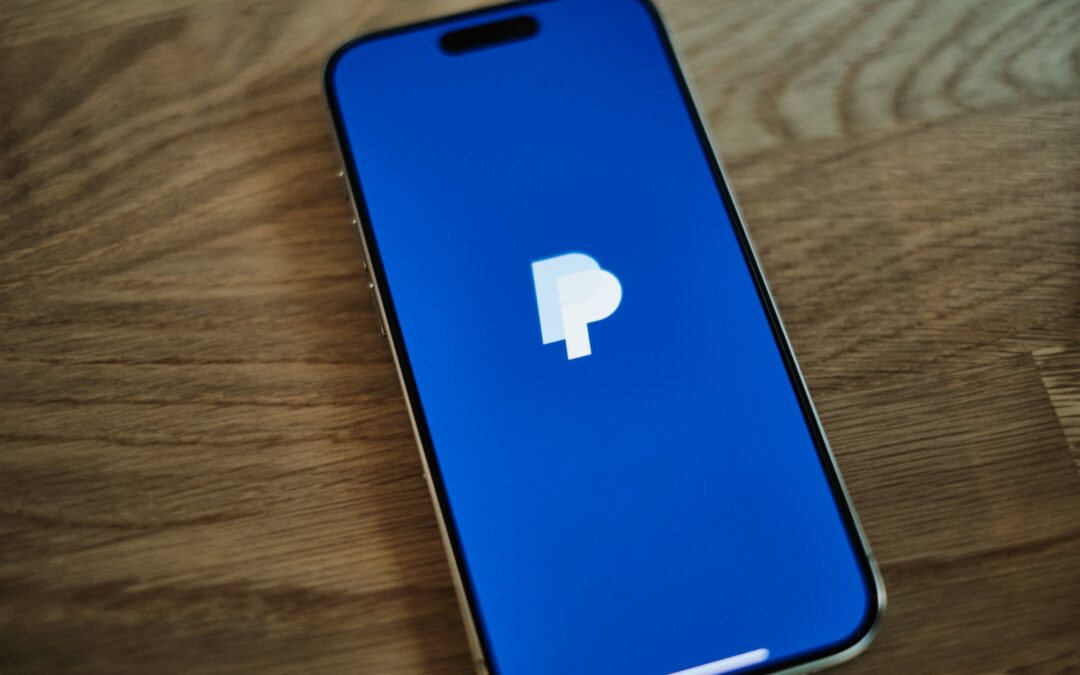The NRW consumer advice center is sounding the alarm: a new PayPal scam is threatening German consumers. Criminals are using the "Pay without Paypal account" function to make purchases using other people's IBAN data. This scam at the Fraud with Paypal shows weaknesses in Consumer protection Paypal on.
PayPal, the most popular online payment service in Germany, allows guest payments of up to 1500 euros without opening an account. Fraudsters misuse old IBANs removed from PayPal accounts for their own purposes. Consumers often only notice the fraud when debt collection letters arrive.
The NRW consumer advice center advises people to only disclose IBANs rarely and to check their accounts regularly. In the event of unauthorized debits, those affected have up to 13 months in which to file a chargeback. Experts recommend disputing claims and filing a complaint to avoid negative Schufa entries.
The most important findings
- New scam discovered for PayPal guest payments
- Criminals use other people's IBAN data for purchases
- PayPal is the most used online payment service in Germany
- Guest payments up to 1500 euros possible without a PayPal account
- In the event of unauthorized debits: Initiate objection and chargeback
- Only pass on IBAN data sparingly and check accounts regularly
- File a complaint to prevent negative Schufa entries
Introduction: What is the current PayPal scam?
The consumer advice center warns of a new Paypal scam. Fraudsters are using the "Pay without a PayPal account" option to make purchases at the expense of others. This scam jeopardizes the Paypal security and affects all online shoppers.
Definition of the scam
In this scam, criminals use other people's IBAN data for guest payments of up to 1500 euros. They misuse the bank details of unsuspecting consumers to order goods. The NRW consumer advice center criticizes Paypal for not carrying out sufficient checks on IBAN data or identities.
Consumer groups affected
Every online shopper is potentially at risk. Users who carelessly disclose their bank details or fall for phishing emails are particularly affected. Beware of Paypal phishing is therefore the order of the day for all Internet users.
Objectives of the fraudsters
The criminals are pursuing several goals:
- Purchasing at the expense of others
- Misuse of bank data
- Identity theft
| Type of fraud | Damage in Germany (per year) |
|---|---|
| Cyber crimes with phishing | Double-digit million range |
| Paypal fraud | Part of the total loss |
The Paypal security and exercise caution in the event of phishing attempts is crucial to protect yourself from such scams.
How do consumers recognize the scam?
Consumers should be vigilant in order to recognize PayPal fraud attempts at an early stage. An effective Paypal account protection begins with awareness of suspicious activity.
Typical characteristics of fraudulent e-mails
Fraudulent e-mails often have certain characteristics:
- Urgent calls to action
- Incorrect grammar or spelling
- Unusual sender addresses
- Links to fake websites
Identify suspicious phone calls
Caution is advised when making telephone calls. Reputable companies never ask for sensitive data over the phone. To protect Paypal login data, never pass on passwords or TANs.
Warning signs for online transactions
Watch out for unusual direct debits or requests for payment. The case of Kristian W. shows how important regular account checks are.
| Warning signs | Recommended measure |
|---|---|
| Unknown debits | Immediate contact with PayPal |
| Suspicious e-mails | Do not click on links, check the sender |
| Prompts for data entry | Enter only on the official PayPal site |
If fraud is suspected, it is important to act quickly. The consumer advice center offers free brief consultations and provides support in clarifying complex cases.
Tips for preventing fraud
To ensure secure payments with PayPal, there are a few important steps to follow. The consumer advice center provides clear recommendations on how users can protect themselves from the current PayPal security risks can protect them.
Security measures for PayPal accounts
A cornerstone for secure payments with PayPal is the economical use of your own IBAN. Avoid making it publicly visible. Check your account transactions regularly to detect unusual activity at an early stage.
Use of two-factor authentication
Activating two-factor authentication is effective protection against unauthorized access. Each time you log in, an additional code is required, which is sent to your smartphone. This significantly increases the security of your PayPal account.
Create strong passwords and change them regularly
Use complex passwords with a mixture of upper and lower case letters, numbers and special characters. Change these at regular intervals to minimize the risk of unauthorized access.
| Security measure | Advantage | Implementation |
|---|---|---|
| IBAN protection | Prevents abuse | Economical passing on |
| Two-factor authentication | Increased account security | Activate in account settings |
| Strong passwords | Protection from hackers | Select a complex combination |
Please note that there is often a period of eight weeks for chargebacks in the event of unauthorized debits. If you suspect fraud, you should contact your bank immediately and file a complaint.
By implementing these measures, you can significantly reduce your risk of becoming a victim of PayPal fraud and ensure secure payments.
Options for action in the event of suspected fraud
If you suspect a PayPal scam, it is crucial to act quickly. The Consumer protection Paypal recommends immediate action to minimize financial losses and protect your rights.
Immediate action in the event of suspicious activities
If you recognize unauthorized debits, object to the claim immediately. You can initiate a chargeback within 8 weeks. In the case of unauthorized debits, you even have 13 months. It is also important to file a complaint with the police.
Contact with Paypal
Inform PayPal immediately of any suspicious activity. Buyer protection generally covers purchases of goods, with exceptions such as competitions. In the event of attempted fraud, direct communication with PayPal is crucial for a quick solution.
Informing the consumer advice center
The consumer advice center plays an important role in protecting against fraud. Report incidents to warn others and provide valuable information to help combat scams. In the case of debt collection claims, you should dispute them by submitting the complaint in order to avoid negative entries with credit agencies.
Consider this: In 2023, almost 84 billion euros were turned over in German online retail. As sales increase, so do fraud attempts. Stay vigilant and use the support of Paypal and the consumer advice center to protect yourself from fraud.
Frequently asked questions about the Paypal scam
Many users are unsure when it comes to Paypal security goes. Here we answer the most frequently asked questions about the current scam.
What to do in the event of unauthorized debits? Immediately object to the claim and arrange for a chargeback with your bank. It is also advisable to file a complaint. Beware of Paypal phishingCheck your account regularly for suspicious activity.
How do I recognize fake invoices? Fraudsters place them directly in the Paypal app. Look out for supposed Coinbase invoices and additional telephone numbers for queries. If in doubt, contact the official PayPal customer service.
What should I do if I receive a suspicious call? Do not press any buttons when prompted. Fraudsters often use pressure to provoke quick action. If you are unsure, hang up and contact Paypal support.
"Act quickly in the event of fraud and don't wait for claims," advises the consumer advice center.
If you have fallen victim to fraud, check your PayPal account immediately and inform your bank. The consumer advice center offers advice and support for those affected.
Survey: Findings on the perception of PayPal fraud
A recent survey on the perception of PayPal fraud shows alarming results. Many users underestimate the risks of the PayPal scam. The consumer advice center urgently warns of this danger.
Evaluation of the results of the consumer survey
The survey revealed that two thirds of online shoppers trust ratings and reviews when making purchasing decisions. This makes them vulnerable to the PayPal scam. Fraudsters exploit this trust to deceive victims.

Raising general public awareness
The Consumer protection Paypal is facing a challenge. The public needs to be made more aware of this form of fraud. Experts recommend critically scrutinizing reviews and being careful with personal data.
Comparison with other scams
Compared to other forms of fraud, the PayPal variant is particularly insidious. It exploits the high level of trust in the payment service provider. The consumer advice center advises increased vigilance for online transactions.
| Type of fraud | Risk factor | Consumer protection measures |
|---|---|---|
| Paypal scam | High | Critical checking of emails, two-factor authentication |
| Fake stores | Medium | Checking the imprint, caution with advance payment |
| Phishing | High | Do not click on suspicious links, check the sender address |
Case studies: Analyzing fraud attempts
The analysis of fraud attempts at Paypal shows alarming trends. Paypal security risks are on the rise, as recent cases show. Criminals use various methods to obtain personal data.
Best-known cases in Germany
A well-known case of Fraud with Paypal concerns a man who received a request for payment for an unknown purchase. Such cases are becoming more frequent. Fraudsters often use stolen IBAN data from data leaks or dubious competitions.
Common methods used by fraudsters
Fraudsters send fake emails that purport to come from PayPal. They use informal salutations such as "Hello" or "Dear customer". Phishing emails account for around 1% of emails worldwide. Criminals also use text messages with the pattern "Hello Dad/Hello Mom".
User reports and cautionary tales
Users report similar experiences in the Paypal community forum. They warn against the guest payment option. Recipients should not disclose any sensitive information. Reputable companies never request such data by e-mail. In Germany, phishing causes millions in losses every year.
"I received an email that looked like it was from Paypal. Fortunately, I didn't click on the link and enter my details."
The role of the consumer advice center
The consumer advice center plays a decisive role in the fight against the PayPal scam. It actively campaigns for Paypal consumer protection and informs citizens about current dangers.
Education and information work
The NRW consumer advice center warns of a new Paypal scam. Fraudsters are using the "Send money to a friend" function to circumvent buyer protection. The experts advise caution when choosing a payment method and recommend invoice or direct debit if possible.
Support for affected consumers
Victims of guest account fraud often only notice the abuse late. The consumer advice center advises people to dispute unknown bookings immediately. It offers help with problems with PayPal and demands stricter security measures from the company.
Options for reporting attempted fraud
The consumer advice center encourages citizens to report fraud attempts. This helps to identify trends and warn others. Current cases show that fraudsters are also using messaging apps such as WhatsApp. The experts recommend ending suspicious calls immediately and not disclosing any personal data.
| Tips from the consumer advice center | Why important |
|---|---|
| Do not share IBAN | Protects against misuse |
| Contradict suspicious bookings | Fast response important |
| Be careful with the "Friends" function | No buyer protection |
| Report attempted fraud | Helps other consumers |
Technical background to the scam
Paypal security is facing new challenges. Criminals are using clever methods to exploit vulnerabilities in payment services. One example is the "Pay without a PayPal account" function, which opens the door to fraudsters.
Software and tools used by fraudsters
Fraudsters use special software to obtain IBAN data. This data can come from online phishing, data leaks or public sources. They use this information to initiate unauthorized payments via PayPal's "guest payment process".

Security gaps in payment services
One serious weakness is the lack of identity verification for guest payments. Fraudsters only need a valid IBAN to commit fraud. In one case, PayPal demanded 56.75 euros from a user for a purchase he knew nothing about. Such incidents underline the Paypal security risks.
Development of fraud methods over the years
Fraud methods are becoming increasingly sophisticated. Consumer advocates are urging improved security measures for guest payments. Banks should be vigilant against unauthorized debits and inform affected customers immediately. Users should protect their account data, avoid phishing attempts and regularly check their account statements.
In the event of unauthorized debits, those affected have the right to have the amount reversed within 13 months. Constant vigilance and quick action are crucial to ensure your own financial security.
Legal basis and consumer rights
The consumer protection Paypal and the Paypal account protection are important aspects of online shopping. But what rights do consumers actually have? Let's take a look at the legal basis.
Relevant laws for the protection of consumers
The right of withdrawal is a central pillar of consumer protection. For online purchases, consumers generally have 14 days to cancel their order without giving a reason. This applies to most products, with a few exceptions such as customized goods.
Rights for purchases and transactions
The Paypal account protection offers additional security. It applies if ordered goods do not arrive, are damaged or deviate significantly from the description. Important to know: In the case of direct debit payments, consumers can initiate a chargeback within eight weeks.
Possibilities for legal action
In the event of problems, consumers should first contact the merchant. If this does not lead to success, PayPal Buyer Protection can be used. Please note: The decision of the buyer protection is not legally binding. In the event of a dispute, the courts will ultimately decide. Consumers have up to three years to assert claims.
Consumer protection is not a luxury, but a fundamental right in the digital age.
Outlook for the future: Developments in the area of cyber fraud
The digital world is developing rapidly, and so are the methods used by cyber criminals. For secure payments with PayPal and other services, it is important to stay informed about future trends.
Trends and forecasts
Experts expect an increase in AI-supported scams. Cybercriminals are using tools such as WormGPT to develop sophisticated malware. This development poses new challenges for PayPal security.
The importance of digital education
In the face of increasing threats, digital education is becoming ever more important. Consumers need to learn to recognize phishing emails and adopt safe online practices. This is the only way they can protect their personal data and finances.
Innovations to combat fraud
Payment service providers invest in advanced security technologies. Biometric authentication and AI-based fraud detection will play a greater role in secure payments with PayPal. These innovations aim to stay one step ahead of fraudsters.
| Trend | Impact on PayPal security | Consumer protection |
|---|---|---|
| AI-supported scams | Increased complexity of attacks | Improved information needed |
| Biometric authentication | Stronger account protection | Simpler, secure payments |
| AI-based fraud detection | Faster detection of anomalies | Reduced risk for users |
The future of cyber security is in the hands of everyone involved. Only through the joint efforts of payment service providers, consumers and security experts can we create a more secure digital payment landscape.
Conclusion: vigilance is the best protection
The Paypal scam poses a serious threat to consumers. The consumer advice center warns that complete protection is hardly possible. PayPal's guest account function in particular harbors risks, as fraudsters can access the victim's current account directly.
Summary of the most important findings
In 2022, one in four people in Germany were victims of payment fraud, identity theft or phishing. The damage caused by economic crime amounted to 206 billion euros, 150 billion of which was caused by cyberattacks. The Paypal scam Consumer advice center advises increased caution, especially during shopping events such as Black Friday.
Reminder of personal responsibility
Consumers should regularly check their account transactions and report suspicious activity immediately. Strong passwords, secure handling of personal data and caution with unknown offers are crucial. Consumer protection Paypal recommends only using trustworthy partners for online transactions.
Conclusions from experts at the consumer advice center
Experts emphasize that vigilance is the most effective protection against online fraud. They advise never making advance payments, not disclosing sensitive data and only using official banking apps. Despite the risks, in many cases the bank is liable for losses unless the consumer has acted with gross negligence.
